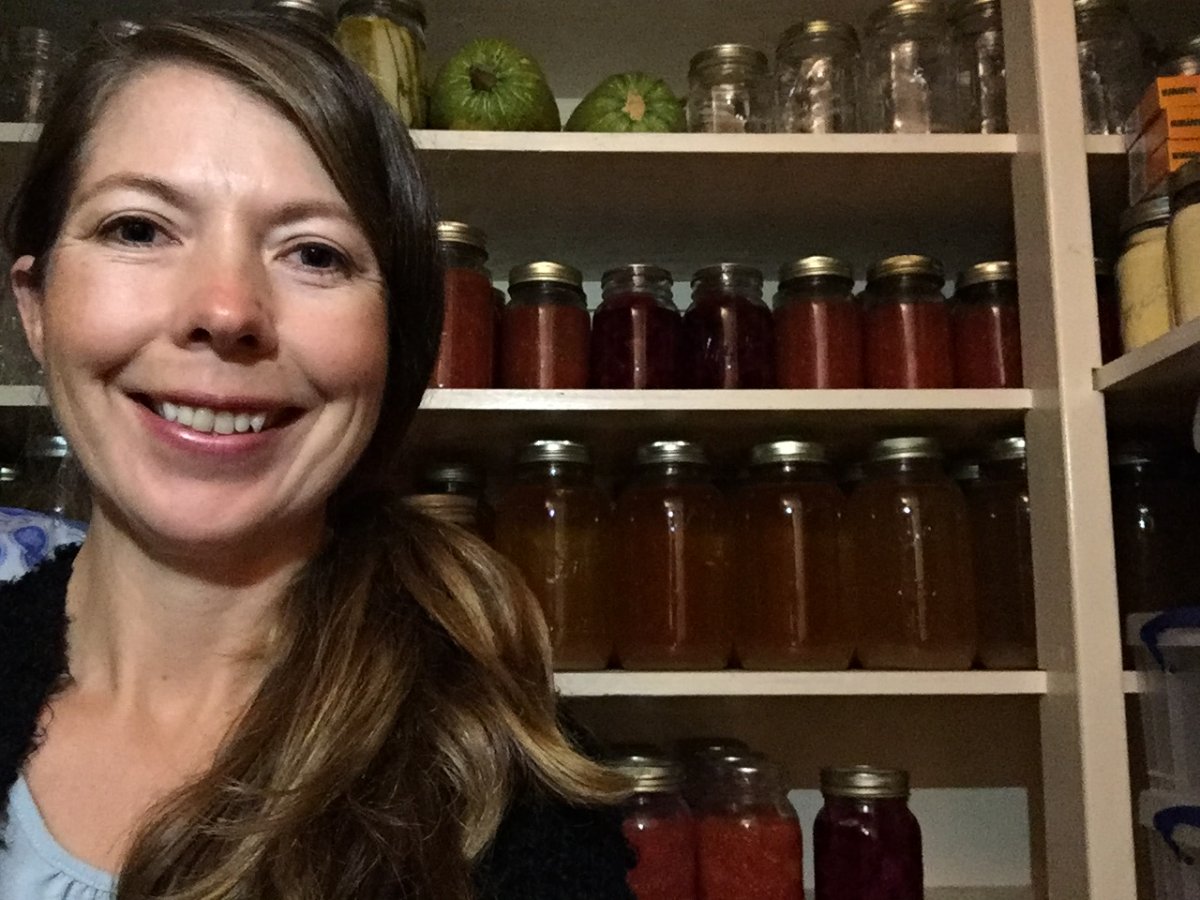Growing up in rural Saskatchewan, Lexie Spahich has memories of working on an assembly line with her siblings, preserving the food from their garden for the winter.

Without power or running water, it was quite the ordeal for the family of 10 living near the small town of Unity, about 130 kilometres southeast of the city of Lloydminster on the shared Alberta border.
While their father kept the stove stoked, the eight children were busy helping their mother wash produce, pack it into jars, add water brine and get it canned.
They relied on the preserves they packaged for sustenance throughout the year — and especially during the winter.
“The process of doing it is fun,” Spahich said, reflecting on some of her favourite childhood memories. She said it’s satisfying to be able “to provide for yourself and have good healthy food.”
Decades later, Spahich, now living just outside of Marwayne, Alta., cans hundreds of jars each year to feed her own family of six, maintaining the tradition.
After all, her mother, Paulette Lysyshyn — along with Marla Rauser — fought one of the most famous battles in canning culture to ensure that it could continue.

Get weekly health news
In the early 2000s, when Bernardin, the company that makes the jars they used, wanted to discontinue the lids that fit them, the two women led a successful charge against the move.
Generational canners, like Spahich, inherit their jars, but not the lids. Lids need to be replaced so that they seal. Keeping them in production is important to the process.
However, finding them this year has been a little more difficult, Spahich said, noting the smaller shops in her community have barely been able to keep their preserving products on the shelves.
Some smaller shops in her community have had trouble keeping them on the shelves, she said.
“People were taking them so fast that they didn’t sit on the shelf very long and people were buying a lot,” she said. A new batch would come in, then it would only take a couple of customers before the store was all sold out again, she said.
Spahich’s recent experience reflects what major retailers have been saying about the demand for their preserving products during the coronavirus pandemic.
- Retired Quebec teacher buys winning lottery ticket at last minute, wins $40M
- N.B. election: Higgs went to ‘very dark place’ with Liberal joke, opponent says
- NDP want competition watchdog to probe potential rent-fixing by landlords
- Jasper mayor says CN Rail relocation will be devastating: ‘Deeply disappointed’
In an email to Global News, Home Hardware called it “unprecedented” and noted that the company been working with suppliers to maximize availability as the canning season peaks. Walmart said its shelves are stocked and that it anticipates the trend to continue into next year.
Spahich, too, has had people contact her looking for jars.
“Everybody grew gardens this year, so they wanted to process them,” she said.
“People are scared, wondering where they’re going to get food from.”
While she needs all of hers, she’s also had been fielding questions from friends and acquaintances curious about canning.
“It’s mostly, ‘How do I do it?'” the experienced canner said. “‘How long do I process for?’ And, ‘What types of additives do I need to put in?'”
Sharing recipes that have been passed down, along with some of her own, is something she’s eager to do.
Favourites in her household include salsa, apple juice, jams and pickles. But she also does sauerkraut, pears, soups and relishes.
“Pretty much anything you can think of, I’ll just can it,” she said.
She doesn’t necessarily need to can the food — like her parents did. She does it because she wants to.
“One of the main reasons that I do it is that I know what’s in the food. I know what types of preservatives are in there,” Spahich said.
“The whole process is just really grounding and I think it helps balance us out in a world that’s moving really quickly now.”
That’s why Spahich is so encouraged by people’s newfound interest in canning.
“It’s healthy to know what’s in your food, but also just for your whole mental health,” she said. “It’s really good for the soul.”













Comments